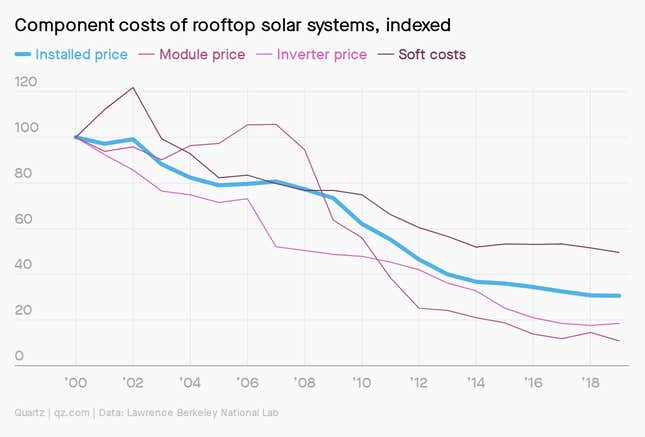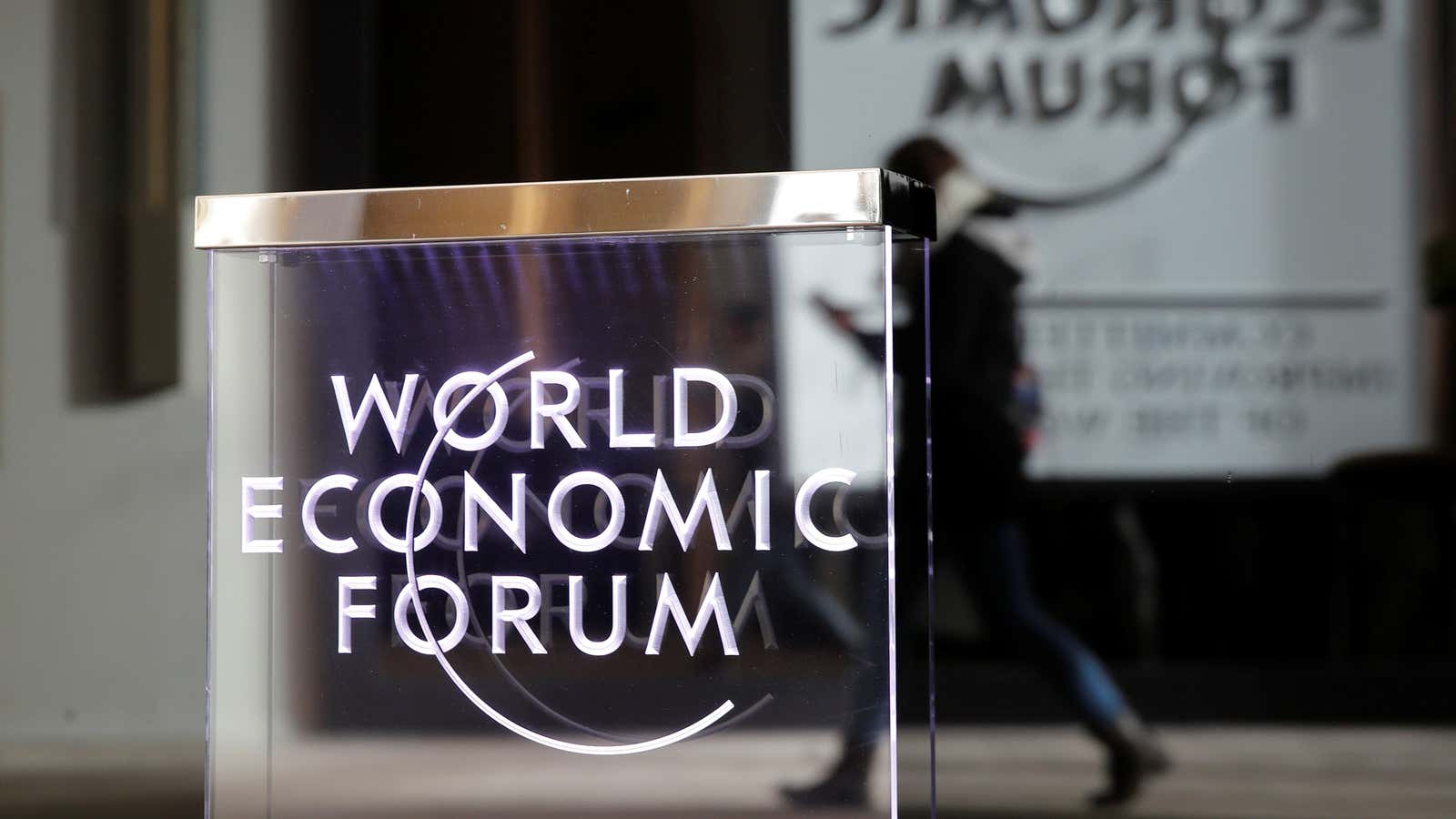Good morning, Quartz readers!
Here’s what you need to know
At Davos, Xi Jinping called for collaboration—within limits. The Chinese president’s address kicked off the World Economic Forum by stressing global cooperation, though warned other countries not to “meddle” in China’s affairs.
Clubhouse raised $100 million. An audio-only social media platform with two million users and valued at $1 billion could indicate that the future is in audio, but it also could be a pandemic blip.
GameStop’s volatility temporarily halted NYSE trading. Fueled by short sellers and personal investors on Reddit, the video game retailer’s stock price spiked sharply before plummeting again.
The world is applying pressure to Russia. The US has called for Kremlin critic Alexei Navalny’s release from prison, and EU foreign policy chief is flying to Moscow to personally relay the bloc’s opposition while thousands continue to protest in the streets.
Moderna says its vaccine can protect against variants. But, to be safe, it’s beginning trials on a version that could maybe be even more effective.
It’s Italy’s prime minister’s last day on the job. Giuseppe Conte’s resignation after losing parliamentary majority earlier this month could result in snap elections as the country struggles to claw its way out of the pandemic.
What to watch for
The International Monetary Fund will issue its latest appraisal of the state of the global economy today. The picture is likely to have dimmed since October, when the agency last released its World Economic Outlook. Then, governments were phasing out lockdowns, and stimulus funds were cascading through big economies.
The IMF also warned that improvements could easily be reverted by a surge in Covid-19 cases, or vaccine delays—both of which came to pass. As they struggle to solve those problems, governments should pay attention to another risk factor pinpointed by the IMF: unequal access to vaccines across countries. One assessment, by the International Chamber of Commerce, puts the cost of vaccine nationalism at $4.5 trillion for rich countries.
Charting solar’s declining cost
Twenty years ago, a home solar system in the US cost homeowners upwards of $80,000. Today, a system costs around $20,000, and the technology is getting cheaper all the time. Still, as cheap as it has become in the last few decades, it’s not nearly as cheap as it should be.

Most systems are leased by homeowners, which requires a hard sell by solar companies, which leads to outsized marketing costs. And solar retailers are required to keep mountains of paperwork on hand to deal with inconsistent regulations from state to state.
As panels get cheaper, solar companies will need to continue to slash their soft costs if they want to start turning a profit.
Space’s “last mile problem”
SpaceX’s Transporter-1 mission was the first in a series of “rideshare” missions planned by the company, whose reusable rocket boosters and bundling of multiple spacecraft could enable more ambitious missions while driving economic growth back on earth.
Still, space travel thrives on efficiency, and many missions may require dropoff at different altitudes or different orbits. For operators, it means putting satellites in less than optimal positions, or investing in expensive propulsion systems to boost their spacecraft to the correct spot.
Space transportation has a last mile problem, and venture-backed firms are vying to solve it.
✦ If you’ve been orbiting around the idea of a Quartz membership, why not try it free for seven days?
Surprising discoveries
Indian courts calculate the monetary value of women’s unpaid labor… But will it ever translate into an actual salary?
…and Spanish artwork celebrating women is too political. The country’s far-right party, Vox, says the Madrid mural has got to go.
B-52s will be around until they’re 90. The US bomber plane, which has roamed around the world, is just that well made.
American Airlines is trying to deboard its wines. If passengers won’t come to the flying bar, the flying bar will come to them.
Can you prove there’s life after death? A Las Vegas tycoon will pay $500,000 for the most compelling essay about a real-life (or real-afterlife?) experience.
Our best wishes for a productive day. Please send any news, comments, persuasive prose, and a Chrysler that’s as big as a whale to hi@qz.com. Get the most out of Quartz by downloading our iOS app and becoming a member. Today’s Daily Brief was brought to you by Ana Campoy, Tim McDonnell, Tim Fernholz, Susan Howson, and Jordan Lebeau.




